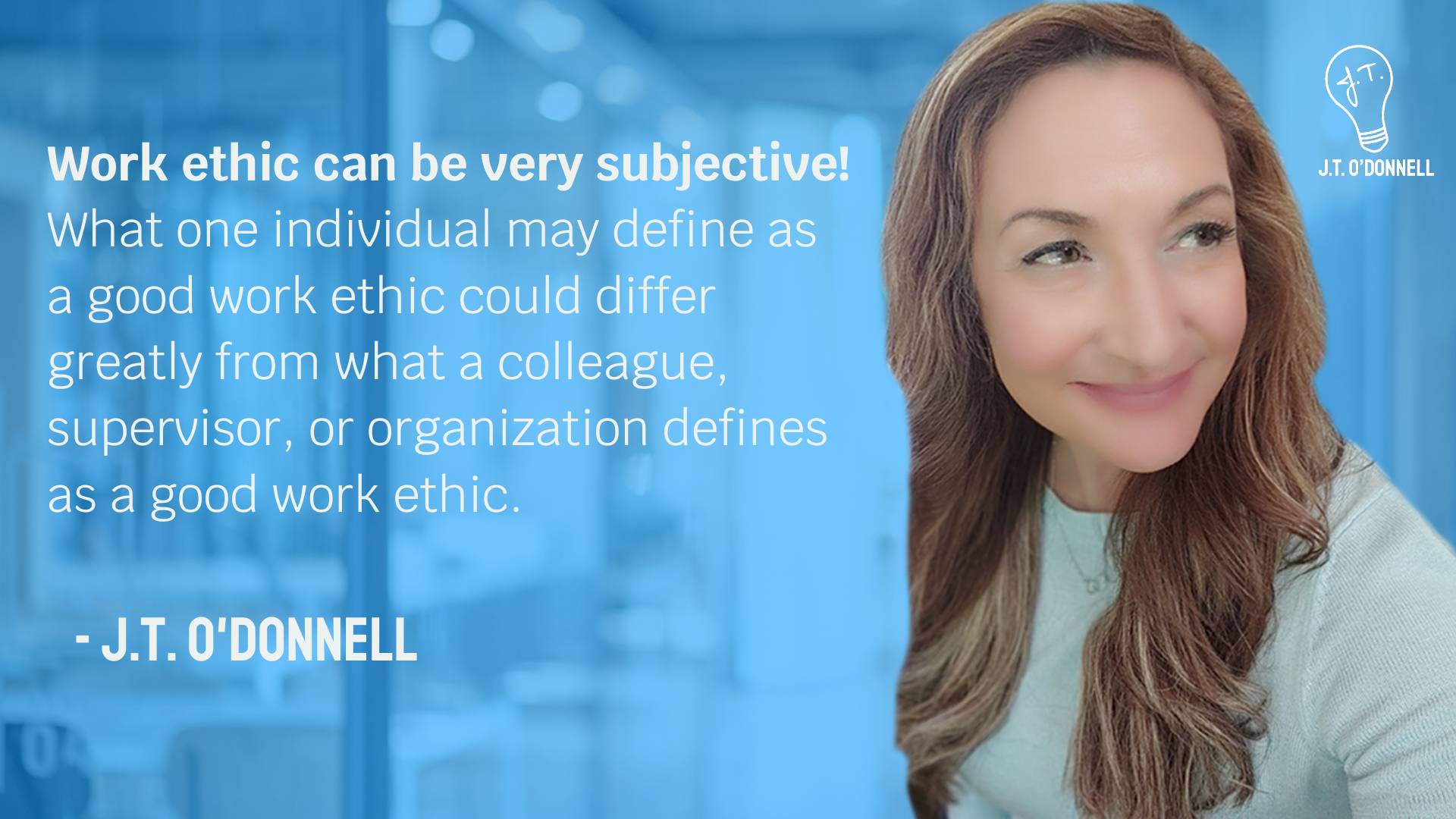
Work ethic can be very subjective!
What one individual may define as a good work ethic could differ greatly from what a colleague, supervisor, or organization defines as a good work ethic.
It’s a lot like a sense of humor. You may think that you have an amazing sense of humor, but that doesn’t take into account that people have strong opinions about what’s funny and what is not funny.
So when it comes to your career, you should NEVER just assume that you have a strong work ethic!
The Definition Of Work Ethic Can Vary By Generation
Millenials and Baby Boomers still make up the bulk of the workforce (although Generation Z’s impact will be felt soon), so a majority of the workplace conflict when it comes to work ethic still stems mostly from these two generations of workers.
I’m not trying to start a war between the two generations by stating these facts, but the truth is all of these workers come from very different life experiences, and as a result may have a different impression of what makes a good work ethic. If employees don’t make an effort to understand this, it could cause friction in the workplace, and ultimately lead to you getting fired for not having a work ethic that aligns with the company.
Millennials And Lack Of Work Ethic
There are numerous millennials that have worked hard and built successful careers for themselves. I’ve worked with many millennials and they’re a dedicated bunch of workers. But, many of these workers became successful by realizing they had to adapt to the workforce they were joining.
You may have a great education, and all the confidence in the world, but you can’t just march into a new job like you already own the place. You have to take time to get a sense of the workplace, and the expectations. There’s no substitute for on-the-job experience!
Another thing that sometimes gets millennials in trouble are preconceived notions about what the workplace should be like. I’ve touched on this before, some millennials enter the workforce with outdated thoughts about how they’re employer is responsible for coaching them and helping them advance their career. That’s false! It’s up to the employee to take the initiative and seek opportunities to grow their careers.
Millennials tend to also have unrealistic expectations about workplace culture. While many workplaces offer unique perks to give employees stress relief, it’s not employers’ job to make work fun 24/7. Some millennials get disappointed quickly when the workplace culture doesn’t live up to their expectations.
By making an effort to understand your company’s expectations, and adapting to the workforce, you’ll slowly start to build trust and respect, and eventually you’ll have a role in shaping the company and its work ethic. If you’re unwilling to put in the effort, your career will suffer.
Baby Boomers And Lack Of Work Ethic
On the other end of the spectrum some companies find themselves in desperate need of a culture change, and like to hire millennials because of their different life experiences and perspectives.
In these cases, baby boomers can get themselves in hot water by not making an effort to adapt to the changes in the company culture.
When you’ve been at a job for a long time, it’s easy to get stuck in your old ways. But, not only is that bad for career growth, but it makes you stick out like a sore thumb when expectations begin to change.
Change isn’t always easy, but those willing to embrace it and make an effort to mentor and support their millennial co-workers, put themselves in a better position to adapt and continue to grow their careers with the company.
Baby boomers that fail to change, could find themselves on the chopping block.
Always Understand Your Company’s Expectations For Work Ethic
It’s important for employers to clearly state their expectations, and from there it’s up to the individual employee to make sure they’re making the effort to align with the company’s work ethic. Keep in mind, company cultures are always changing, and the expectation may also change.
If you’re unsure about whether or not you’re meeting expectations, take the initiative of meeting with your supervisor, and ask what you can do to better meet those expectations. This shows that you care about the work you do, and you want to grow as an employee.
Once you have a better understanding about how to meet those expectations, you can then put together a plan for exceeding them. If you’re always working to exceed the company’s expectations, there’s a good chance that you’ll never have to question your work ethic.
P.S. Are You Frustrated With The Job Search?
The job search process can be long and frustrating, especially if you’re not prepared for it.
In a competitive job market, you need every advantage you can get to stand out. My company, Work It Daily, can give you all the tools you need to make sure that your job search is in order. Our career coaches will review your cover letter, resume, and LinkedIn profile, while our numerous courses and tutorials will tell you everything you need to know about the job search process.
Not convinced that career coaching is right for you? Give us a try for FREE for 3 days!
I’d love to hear your thoughts on this! Comment below and be sure to use the hashtags #JTTalkJobs & #WorkEthic so we can all join in the conversation.
AND, If you don’t think a membership to my company’s career coaching service is for you (yet). At Work It Daily, we put together the following free career growth tools for you:

